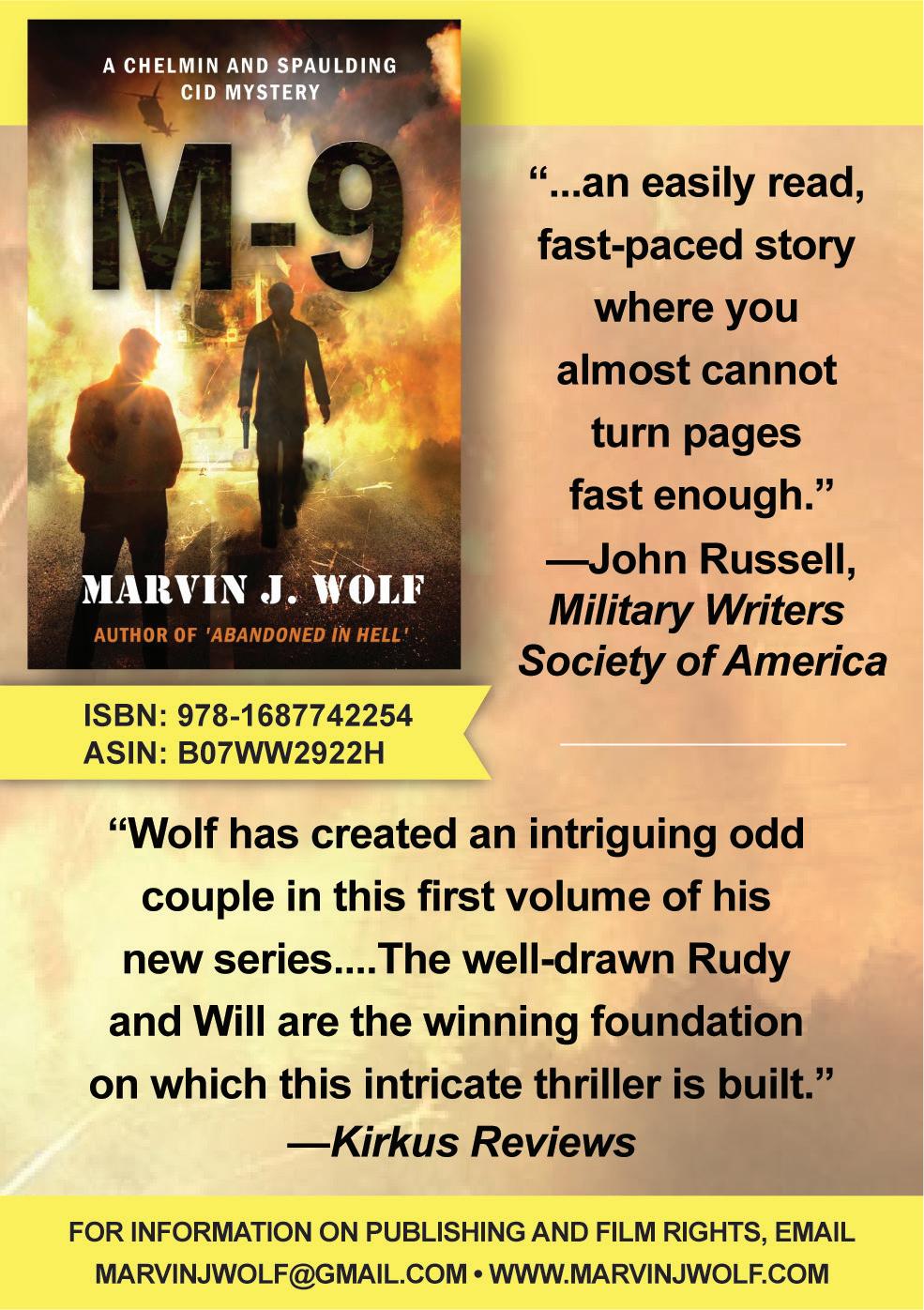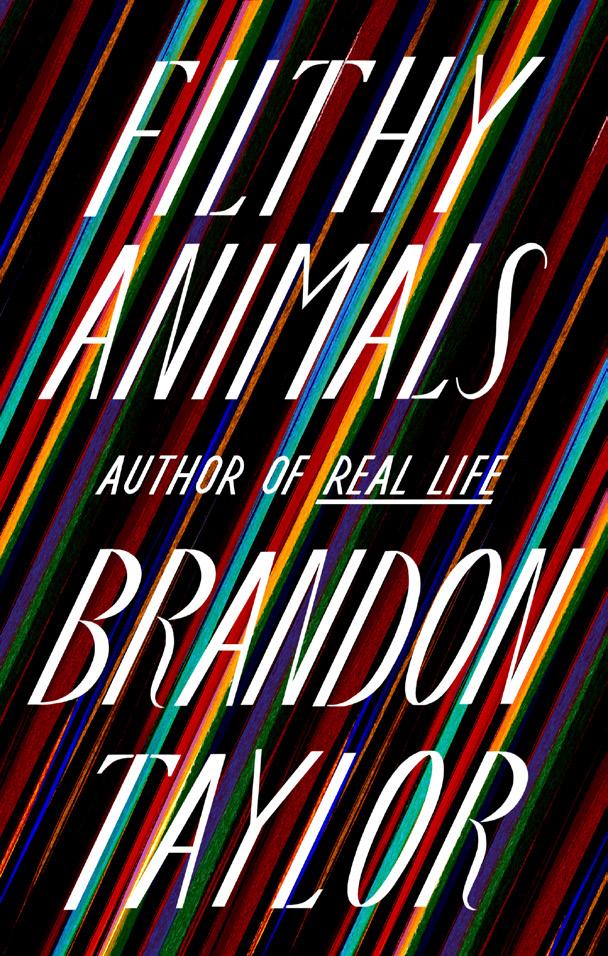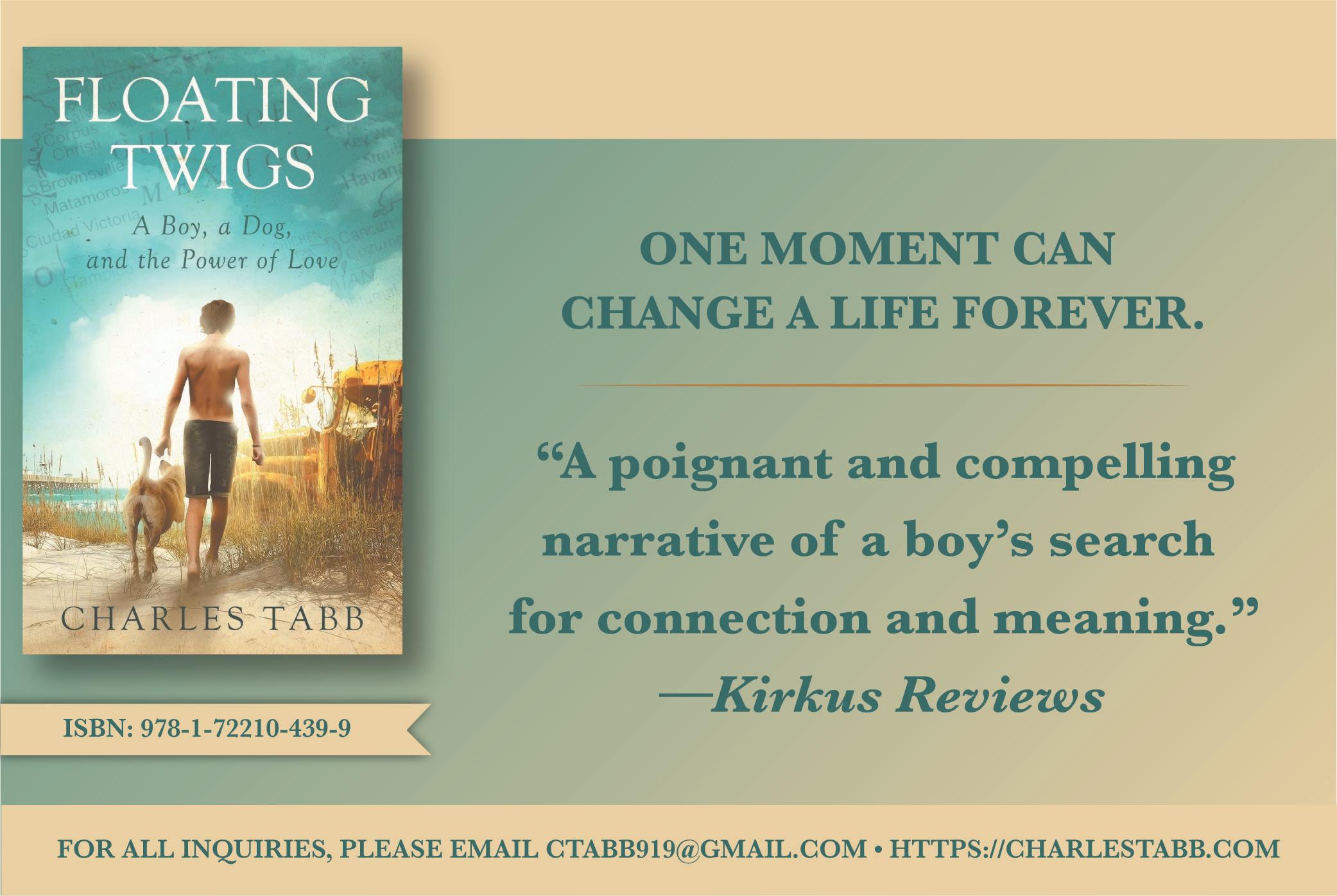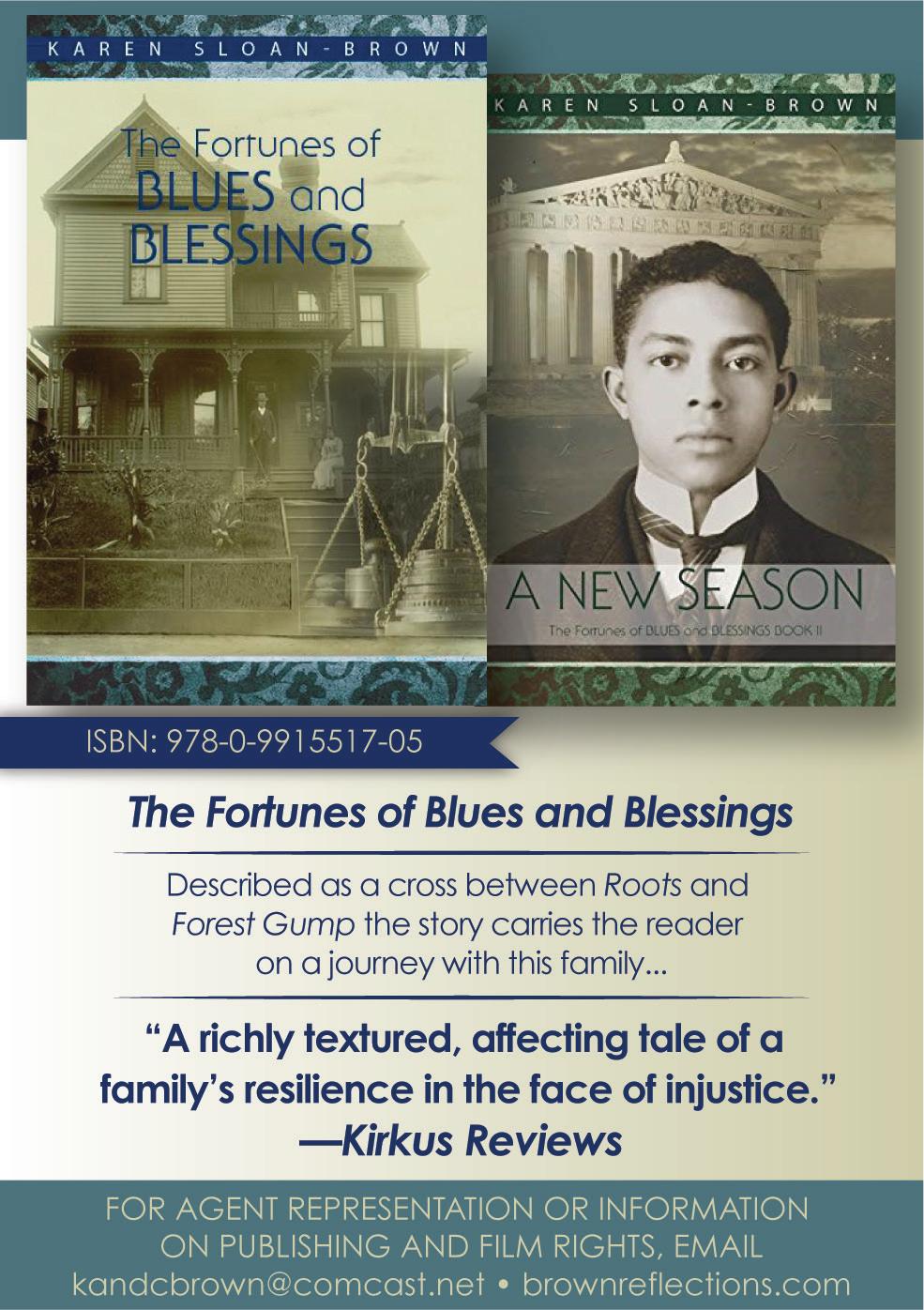
17 minute read
MRS. MARCH by Virginia Feito
mrs. march
MRS. MARCH
Feito, Virginia Liveright/Norton (256 pp.) $26.00 | Aug. 10, 2021 978-1-63149-861-9
In a horror-laced psychological drama, the wife of a bestselling New York novelist learns his latest protagonist is modeled on her. “But…isn’t she...a whore?” whispers Mrs. March to the woman behind the counter at the patisserie she visits daily, who, like every other person in Manhattan, is reading, and loving, her husband’s new book. Abandoning her purchases, she bolts from the store, never to return, and immediately confronts an advertisement featuring a woman smiling knowingly under the words “SHE HAD NO IDEA.” Even the billboards know! This is just one of innumerable creepy details that speed Mrs. March’s descent into a spiraling vortex of psychosis. Not that it’s all in her head—copies of the book are everywhere, even in someone’s cart at the grocery store. Debut novelist Feito sets her story in a hazy period in the pre-technology past and confines much of the action to her protagonist’s claustrophobic Upper East Side apartment, where terrifying literati regularly convene for unbearable parties. Mrs. March’s painfully low self-esteem drives the self-consciousness, paranoia, and jealousy that control her relationships with everyone from her housekeeper to her son to a family she runs into at the skating rink. The husband is there on a weekday? She thrills to speculate this means he’s been laid off and concocts an elaborate lie to cover the real reason her own son is not in school. Mrs. March is the only character in the book who doesn’t get a first name, even in a flashback to her childhood: “On tiptoes, Mrs. March cupped her hand and whispered into her mother’s ear...‘I have to go to the bathroom.’ ” While the poor woman never gets a break from the misery, Feito does offer the reader a few homeopathic drops of humor, such as when her protagonist learns that people will do just about anything you ask if you tell them you work for the New York Times. Feito is Spanish and lives in Madrid, but somehow she is the love child of Patricia Highsmith and Shirley Jackson.
On her way to the screen played by Elisabeth Moss, Mrs. March is absolutely right—everyone is talking about her.
BIG DARK HOLE
Ford, Jeffrey Small Beer Press (288 pp.) $17.00 paper | Jul. 6, 2021 978-1-61873-184-5
Fifteen tales of horror, suspense, and macabre encounters that recount moments when the fantastic finds a crack in our everyday world.
Ford is a prolific writer with a shelf of well-deserved rewards for his novels, but short stories are his sweet spot. Armed with the paranoia of Poe, the psychological terror of Shirley Jackson, and Stephen King’s empathy for everyday people, this latest collection is both subtle and nightmare-inducing, depending on the story. The opener, “The Thousand Eyes,” is a noir-tinged period piece about a mysterious bar, an obsessed painter, and a frightening singer with a “voice of death.” Many of the stories are subdued creature features: “Hibbler’s Minions” is about a flea circus gone awry while “From the Balcony of the Idawolf Arms” features a werewolflike shape-shifter. Finding the minor magic in the everyday world is another thread, but the shifts in style between stories are impressive, from gothic horror in “Inn of the Dreaming Dog” to mythology in “Sisyphus in Elysium” to the long-suppressed grief in the title story. Several of the stories—some of the most experimental and intriguing—find the author narrating his own experiences through fantastical events. In “The Match,” sporadic writing teacher Ford is informed that in order to keep his job, he must fight an angel, as one typically does in academia. Elsewhere, in “Monster Eight,” the author’s fictional
counterpart has a run-in with the local monster just doing his “monster thing,” and in “The Bookcase Expedition,” he witnesses a minor war between fairies and spiders. In “FivePointed Spell,” the final story and one of the longest, Ford deftly spins a tale that starts with shades of Duel or Mad Max and turns into something that more closely resembles The Blair Witch Project.
A collection of wonderfully creepy gems in which each story goes its own way, to frightening effect.

THE BOOKSELLER’S SECRET
Gable, Michelle Graydon House (368 pp.) $28.99 | Aug. 17, 2021 978-1-5258-1155-5
A London bookshop serves as backdrop to the lives and loves of two women from different centuries. The novel toggles back and forth between the story of (real-life) struggling author Nancy Mitford’s life during World War II and present-day (fictional) struggling author Katharine Cabot’s transformative visit to London. When the novel opens on Nancy’s story, the war is in full effect, London is being bombed nightly, and Nancy has just taken a job working at the Heywood Hill bookshop. Nancy and her seven siblings are something of a legend: Of her five sisters, one is a Hitler sympathizer, one a fascist, one a communist, and one a duchess. Nancy takes up spying for the British government by befriending a French colonel who becomes both her lover and her most eager audience for stories of her life, inspiring her to finally write her first successful novel loosely based on her own dramatic family and upbringing. Katie, meanwhile, after a truly spectacular meltdown during a family celebration in Virginia, mostly driven by her frustration with writer’s block, travels to London. Visiting the same Heywood Hill bookshop, she meets a handsome stranger who believes Nancy Mitford wrote a memoir during World War II that was never published; he would love to get his hands on that manuscript because of a family connection to the story. Katie is quickly absorbed by both the mystery of the manuscript and the charms of the man himself, and their literary investigations also inspire her to break free of the constrictions of her life and writer’s block. Despite the complexity of the narrative structure, the novel seems somewhat one-note. The mysteries of the past are not overly gripping, though Nancy is an enjoyable character, as is the delightfully snooty Evelyn Waugh. But Katie elicits little deep interest, coming across as whiny and self-pitying.
Ultimately, the novel suffers from its split focus.
A SLOW FIRE BURNING
Hawkins, Paula Riverhead (320 pp.) $24.21 | Aug. 31, 2021 978-0-7352-1123-0
A young man has been stabbed to death on a houseboat...that much is clear. Hawkins’ third novel, after her smash debut with The Girl on the Train (2015) and a weak follow-up with Into the Water (2017), gets off to a confusing start. A series of vignettes introduce numerous characters—Irene, Deidre, Laura, Miriam, Daniel (dead), Carla, Theo, Angela (dead)—all of whom live or lived in a very small geographical

WORDS WITH... Brandon Taylor
In a new collection of stories, the Booker Prize finalist grapples with the complexities of love, illness, and identity
BY ROBERTO RODRIGUEZ

Bill Adams
With Filthy Animals (Riverhead, June 22), Brandon Taylor follows up his Booker Prize–shortlisted debut novel, Real Life, with a collection of stories that are searing and nuanced, collapsing dichotomies of love and pain, joy and death, humans and animals. A sequence of four interlocking stories follows Lionel, a Black queer graduate student in pure mathematics who was recently released from psychiatric care after a suicide attempt. In “Pot Luck,” Lionel lingers awkwardly at a dinner party when he meets Charles, a bisexual dancer who unexpectedly follows him home. This love affair, however, is nothing short of complicated: Charles is in a nonmonogamous relationship with Sophie, who attempts to befriend Lionel, though the intimacy among the three only heightens Lionel’s anxieties and self-doubt.
Love, throughout the collection, is a terrain fraught with complexity. The protagonist of “As Though That Were Love,” Hartjes, understands love through the prism of violence and self-protection, having taught his childhood dogs to fight and hunt mercilessly; the collection’s title story follows a rowdy cohort of teenage boys as they navigate the social sphere of their small suburban town. How do we reveal ourselves to others honestly and sincerely when our identities are so constricted by social norms? Who are we when we dare to extricate ourselves from these pre-fabricated identities? Taylor spoke to us about these themes over Zoom from his home in Iowa City; our conversation has been edited for length and clarity.
One of the central concerns of Filthy Animals seems to be mental illness, which is examined from many different angles. One of my fixations is certainly how we live in a society in relation to other people, and how we make our interior selves known to others, and what a fraught and complicated process it can be to communicate something true about yourself. I’m also interested in the ways that trying to communicate something true about yourself is often acted upon by these social scripts that we’re constantly performing without knowing we’re performing them. So the character [of] Lionel is someone who has become aware only recently that his entire life is circumscribed by these scripts, and he doesn’t know how to be an honest and earnest and forthright person in the face of what you’re supposed to say, do, or think about how your illness manifests. He feels that he’s always being dictated to. In some ways, he’s trying to figure out how to live in the world and not do harm to others, but he doesn’t know how to do that because the scripts seem to almost require us to maim each other socially and interpersonally. It feels almost impossible, then, to live in an honest way without harming other people, so part of the solution is to just accept that as part of the social contract.
There’s an intimate relationship between love and violence throughout these stories. In what ways would you say they’re inextricable?
When I wrote the book, I hadn’t yet developed a rigorous or coherent language around what it was I was so frustrated with in literature and in culture. What I realize now is that these stories come out of the impulse to point out the ways that we as a culture limit the language [we use] to think about something. There’s this presupposition that when you love someone, you’re going to treat them in certain ways, or you’re going to do certain things to protect them, to inoculate them. But that set of presuppositions ignores the fact there are people who come from incredibly difficult or violent backgrounds and still feel loved or supported by their families or their social systems. That looks so different from what the polite, so-called civilized American ideal of what a family should be. So what I’m trying to do is portray a character’s subjectivity, a character at odds with a culture that they don’t feel a part of.
The concept of the human animal is also crucial to the collection. I’m deeply interested in the human animal. One of the ways that culture chooses to degrade people is to call them animals. I remember being a kid and my grandma being appalled by these country boys being rough and dirty and smelly and tracking mud into our house, and her calling us a bunch of dirty animals. Calling someone an animal is a way of stripping them of their humanity. What I’m interested in is taking this idea and turning it inside out and pointing out the ways that we’re all animals. We all have parts of us that are feral. I think some stories in the book point to this feral nature as a thing to be feared, but there are others that view that as the true state. Becoming animalistic is part of being in tune with oneself.
This speaks really directly to the story “Little Beast,” in which a 20-something babysitter is overcome by the wildness of the little children she’s looking after. Growing up I had a very rural childhood. I always associate childhood with playing under the pine trees and sloshing through the creek and throwing rocks into the pond. There’s this magical period when children just feel like life incarnate, in part because we haven’t taught them the rules of society. They’re alive and touching everything and putting things in their mouths—behaving in ways that are just pure sensation. In that story, I wanted to capture what it’s like to witness a child on the precipice of having to shed that wildness and enter the docility of living in the world. The little girl has a twin brother, and they’re White children; that little White boy is going to go off and do whatever he wants, but that little girl is going to have her identity constructed for her and is then going to be shoved into it like an ill-fitting support garment. The protagonist, Sylvia, is on the edge of some awful change in her life and sees that this little girl is about to be made docile. What do you do when you’re aware of the horrors of socially constructed gender norms?
There’s also this way that illness seem to put pressure on these characters and their desires. “Mass” and “What Made You Made Them,” for instance, are about characters dealing with terminal illness. A big change that happened after the initial drafts of these stories was that I had several health crises, starting in 2019, that forced me to really think about my body. I went from writing about the body being out of control as an external phenomenon to it being visceral and embodied. When I went back to the stories, I had to look very deeply at the body as the source of our earthly experience. But what happens when the body goes awry or begins to fluctuate in ways you can’t control? How does it dovetail with other difficult things in your life? So in “What Made You Made Them,” I wanted to write a story that is about much more than someone dying of cancer. That story is ultimately about family and legacy and the body betraying itself, all complicated by and put under pressure [by] the protagonist’s increasing awareness of her mortality. I’m a writer who’s deeply rooted in the body. I don’t know how to write any other way.
Roberto Rodriguez is a Poe-Faulkner Fellow in Fiction at the University of Virginia. Filthy Animals received a starred review in the April 15, 2021, issue.

area and have overlapping connections and reasons to be furious at each other. We can all agree that the main question is who killed Daniel, the 23-year-old on the houseboat, but it is soon revealed that his estranged mother had died just a few weeks earlier—a drunk who probably fell, but maybe was pushed, down the stairs—and his cousin also fell to his death some years back. Untimely demise runs in the family. The highlight of these goings-on is Laura, a tiny but ferocious young woman who was seen running from Daniel’s boat with blood on her mouth and clothes the last night he was alive. Physically and mentally disabled by an accident in her childhood, Laura is so used to being accused and wronged (and actually she is quite the sticky fingers) that she’s not surprised when she’s hauled in for Daniel’s murder, though she’s pretty sure she didn’t do it. The secondary crimes and subplots include abduction, sexual assault, hit-and-run, petty larceny, plagiarism, bar brawling, breaking and entering, incest, and criminal negligence, and on top of all this there’s a novel within a novel that mirrors events recalled in flashback by one of the characters. When Irene reads it, she’s infuriated by “all the to-ing and fro-ing, all that jumping around in the timeline....Just start at the beginning, for god’s sake. Why couldn’t people just tell a story straight any longer, start to finish?” Hmmmmm.
Overkill.
56 DAYS
Howard, Catherine Ryan Blackstone (450 pp.) $24.99 | Aug. 17, 2021 978-1-982694-65-4
A pandemic lockdown romance that ends very badly indeed. It begins with a casual conversation about the Kennedy Space Center at a Dublin coffee shop. Architectural technologist Oliver Kennedy has never visited the place, and web services concierge Ciara Wyse thinks he really should. They take their

paris is a party, paris is a ghost
coffees to a nearby park, they chat, he invites her to join him at a screening of a documentary about the space program. All super normal, apparently, but then comes the news of the first Irish Covid-19 infection, and then follows the first wave of restrictions, and the pair have to make a momentous decision. After a night at Ciara’s tiny flat, Oliver offers to share the relatively palatial digs his employer, KB Studios, has allotted him as part of his compensation package. The two of them stock up on every necessity they can imagine and prepare to hunker down in the Crossings till the storm has passed. But Howard, in a series of lightning dips into the past and future utterly characteristic of her suspense stories, has already broadcast the endgame for their affair: the arrival of Garda DI Leah Riordan and DS Karl Connolly at the Crossings, summoned by a neighbor alarmed by the telltale stench seeping from Oliver’s flat. The tenant, it turns out, was hiding a horrifying secret from Ciara and everyone else in Ireland, and there are depths still to be revealed beneath his deception.
Each new twist, dispensed with surgical precision, will keep you hooked, nostalgic for the days when Covid-19 was the worst threat.
A HEART DIVIDED
Jin Yong Trans. by Chang, Gigi & Bryant, Shelly St. Martin’s Griffin (400 pp.) $12.99 paper | Aug. 24, 2021 978-1-2502-5013-1
A fresh installment in Jin Yong’s Legends of the Condor Heroes saga. “It is no mean feat to come through the forest at night without getting lost,” quoth a mysterious old fellow, speaking with Jin Yong’s hero, Guo Jing. True enough, especially given that before even attempting to cross the woods, Guo Jing and his fellow martial artist Lotus Huang have had to battle their way past a skillful fighter-cum-sorceress named Madam Ying (“If it were not for the Competing Hands technique, which gave him the ability to cast two unrelated kung fu moves at the same time, he would have taken a nasty hit or two”) and outrun the Iron Palm Gang. All that comes in just the first signature of this fast-paced yarn. There’s much more: As the two wage war against a very bad fellow meaningfully named Viper Ouyang, they realize that they’re sweet on each other. Allowing for a plot-twisting misunderstanding or two, the lovebirds are a natural pair, capable of subduing entire empires: “I’ve got a present for you,” says Lotus. “What is it?” asks Guo Jing. “The city of Samarkand,” she replies. It helps that the two have the Golden Horde of Genghis Khan behind them, another happy relationship that involves a big backstory and all manner of diplomacy; as the story closes, Guo Jing takes a few moments to ask the dying Khan, “What is the point of occupying so much land, killing so many people and sowing so much misery?” The fierce Genghis doesn’t have much to say in response, but he might have said, “Well, it’s what I do.” There’s more adventure awaiting our happy couple, with the author’s trademark fists of fury and set-piece martial scenes piled on thick in this volume. It’s all good fun, though the plot sometimes seems contrived simply to provide an excuse for throwing punches with names like Haughty Dragon Repents and Cascading Peach Blossom Palm.
A treat for fans of Bruce Lee, Jackie Chan, and Shaolinstyle mayhem.
PARIS IS A PARTY, PARIS IS A GHOST
Kim, David Hoon Farrar, Straus and Giroux (256 pp.) $26.00 | Aug. 3, 2021 978-0-374-22972-6
A translator carries the burden of his girlfriend’s suicide through the City of Light and beyond.
Henrik Blatand, the narrator of much of Kim’s ethereal debut novel, is a Dane







